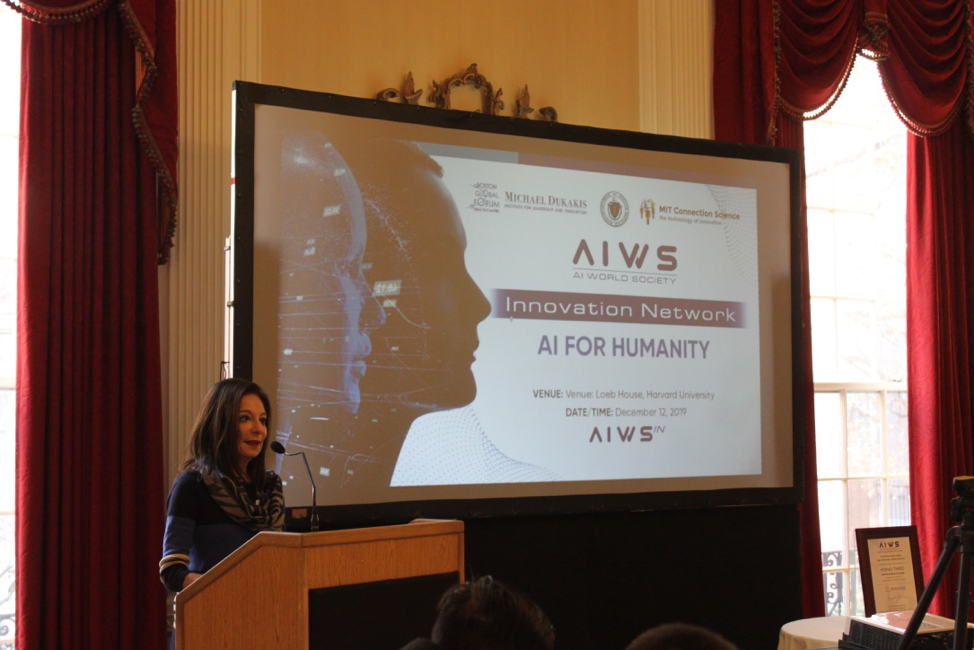
by Editor | Jan 26, 2020 | News
Professor Nazli Choucri, MIT
Co-founder of the AIWS Innovation Network
January 21, 2020
Preface
Advances in AI, internet, social media, and threats to cybersecurity jointly shape a new worldwide ecosystem for which there is no precedent. At issue is building new dimensions, even principles, which would shape the future of international law
- INTRODUCTION – NEW GLOBAL ECOLOGY
The term “artificial intelligence” refers to the theory and development of computer systems able to perform tasks that normally require human intelligence, such as visual perception, speech recognition, decision-making, translation between languages, self-driving cars, and so forth. Almost everyone recognizes that advances in AI have already altered conventional ways of viewing the world around us. This is creating new realities for everyone – as well as new possibilities.
These advances are powerful in many ways. They have created a new global ecology; yet they remain opaque and must be better understood. We have created new tradeoffs that must be assessed. We must now focus on critical principles and essential supporting practices for the new and emerging Social Contract 2020.
We must now re-think and consolidate the best practices for human development, recognizing the power and the value of the individual and of society.
- NEW REALITY – AND NEW UNKOWNS
Advances in AI are far more rapid that we appreciate. Fully understanding the scale of the AI domain remains elusive. We have seen a shift from executing instructions by humans to replicating humans, outperforming humans, and transcending humans.
We are at the beginning of a new era, a world of mind-machine convergence with biological drivers for both mind and machine. Also elusive is the management of embedded insecurities in applications of this new ubiquitous technology and the imperatives of safety and security.
When all is said done, AI remains: devoid of consciousness, empathy, and perhaps select other human features, such as ethics, so fundamental to humanity and the social order. Its current logic is situated at the frontiers of biological intelligence and machine intelligence. While it is generally anchored in past data, it has made possible whole new sources and forms of design space.
In sum: The world of AI today is framed by a set of unknowns — known unknowns and unknown unknowns — where technological innovation interacts with the potential for a total loss of human control.
III. INTERNATIONAL CONSENSUS
There is a clear awareness in the international community of the challenges and opportunities, as well as the problems and perils of AI, and many are seeking ways of managing their approach to AI. At least 20 countries have announced formal strategies to promote the use and development of AI. No two strategies are alike, however there are common themes even among countries who focus on different aspects of AI policy. The most common themes addressed pertain to:
- Scientific research,
- Talent development,
- Skills and education,
- Public and private sector adoption,
- Ethics and inclusion,
- Standards and regulations, and
- Data and digital infrastructure.
Concurrently, AI is becoming a focus for foreign policy and international cooperation – for both developed and developing states. There is a shared view that no country will be able to compete or meet the needs of its citizens without substantial AI capability.
More important, many countries are now involved in technology leapfrogging rather than in replicating known trajectories of the past century. It is no longer expected, nor is it necessary, to replicate the stages of economic development of the west —one phase at a time. Countries now frame their own priorities and strategies.
In sum, all countries are going through a common experience of adapting to and managing unknowns. This commonality of shared elements result in a welcoming international atmosphere for a Social Contract 2020. What is the Social Contract 2020?
- FOUNDATIONS and PRINCIPLES
There is a long tradition of consensus-based social order founded on cohesion and not use of force nor formal regulation or legislation. It is a necessary precursor for managing change and responding to societal needs.
The foundational questions are: what, why, why and how?
What?
A social contract is about supporting a course of action. It is inclusive and equitable. It focuses on the relationships among people, governments, and other key entities in society.
Why?
To articulate the concerns and find common convergences. And to frame ways of addressing and managing potential threats.
Who?
In today’s world, participants in the Social Contract 2020 involve:
- Individuals as citizens and members of a community
- Governments who execute citizen goals
- Corporate and private entities whose operations involve
Business rights and responsibilities
- Civil society that transcends the above
- Innovators of AI and related technologies, and
- Analysts of ethics and responsibility. None of the above can be “left out.”
Each of these constitutes a distinct center of power and influence.
How?
The starting point consists of three foundational principles for powerful international cooperation that provide solid anchors for the Social Contract 2020:
(1) Precautionary Principle for Innovations and Applications:
The precautionary principle is well established internationally. It does not impede innovation, but supports it. It does not push for regulation, but supports initiatives to explore the unknown with care and caution.
(2) Fairness and Justice for All
The second principle is already agreed upon in the international community as a powerful aspiration. It is the expectation of all entities – private and public — to treat, and be treated, with fairness and justice.
(3) Responsibility and accountability for policy and decision – private and public
The third principle recognizes the power of the new global ecology that will increasingly span all entities worldwide — private and public, developing and developed.
Jointly, these basic foundations – what, why, who and how – create powerful anchors for framing and implementing the Social Contract 2020.
- SOCIAL CONTRACT 2020
All participants and centers of power and influence contribute to framing the legal order in the age of AI. And each has rights and responsibilities that must be articulated and respected. An initial framing is presented below:
(1) Individuals, Citizens, Groups:
Everyone is entitled to basic rights and dignity that are enhanced (?) by AI and the Internet Age and entail greater responsibility:
Data Rights and Responsibilities
Each individual has a right to privacy and is entitled to a device to access and control their own data. Individuals have a right to organize ways of managing their data, individually or collectively.
Education and Political Participation
Each individual has the Right to be involved directly and effectively in political decisions. Each has access to education/knowledge pertaining to the use and impact of AI.
Responsibility:
Each individual is prohibited from exercising adverse behaviors, such as hacking and disseminating disinformation.
(2) Governments:
Every government is expected to behave responsibly in the management of AI for governance and for interactions with individuals.
Governments Standards:
- Create incentives for citizens to use AI in ways that benefit society.
United Nations and International Organizations:
- Extend sphere to include AI and extend the upholding of international standards/norms/practices pertaining thereto.
- Create and manage a universal digital currency.
(3) Business Entities
Business operations and related rights come with accountability and responsibility – nationally and internationally.
- Respect independent audits for fairness, accountability, and cybersecurity.
- Respect common AI values, standards, norms, and data ownership rules, and expect penalties for noncompliance.
(4) Civil Society Organizations:
Rights and responsibilities of civil society organizations include monitoring governments and firms with respect to common values.
- Civil society organizations are responsible for compliance with common values/norms/standards/laws and expect penalties for noncompliance.
- Support and recognize exemplary citizen contributions in AI area.
(5) AI Assistants:
AI assistants provide an interface to facilitate compliance with established standards.
- Support AI users and assist them to serve the broad interests of society.
- Engage with other power centers for mutual support and supervision.
VI PREFERENCES and PERFORMANCE
The Social Contract 2020 consists of general principles and directives for its implementation. Each country is different, as would be the approach to the implementation and adoption of Social Contract 2020. These preferences are often in the nature of tradeoffs at the intersection of AI and society. These are simply adjustment mechanisms to facilitate implementation of Social Contract 2020. For example:
- Performance & explicability
- Ethics & efficiency
- Growth & sustainability
- Convenience vs. safety
- Power & accountability
- Regulation & innovation
- Security vs. stability
Social Contract 2020 helps steer societies to transcend current practices and forms of e-government by enabling and providing applications of AI to assist decision making for all critical functions – notably the provision of public services, performance of civic functions, and evaluation of public officials – supported by a Center for National Decision Making and Data (NDMD).
AI supported public services span major critical functions to enable automated public services assisted by AI, notably:
- Health care and public health:
Build AI hospitals for remote, rural, and mountainous areas.
Build AI schools for remote, rural, and mountainous areas.
Build AI law, legal services.
AI public transportation information and support system.
- Public services for tourism:
AI public services for tourism.
- Public services to support labors:
AI labor, job guidance system.
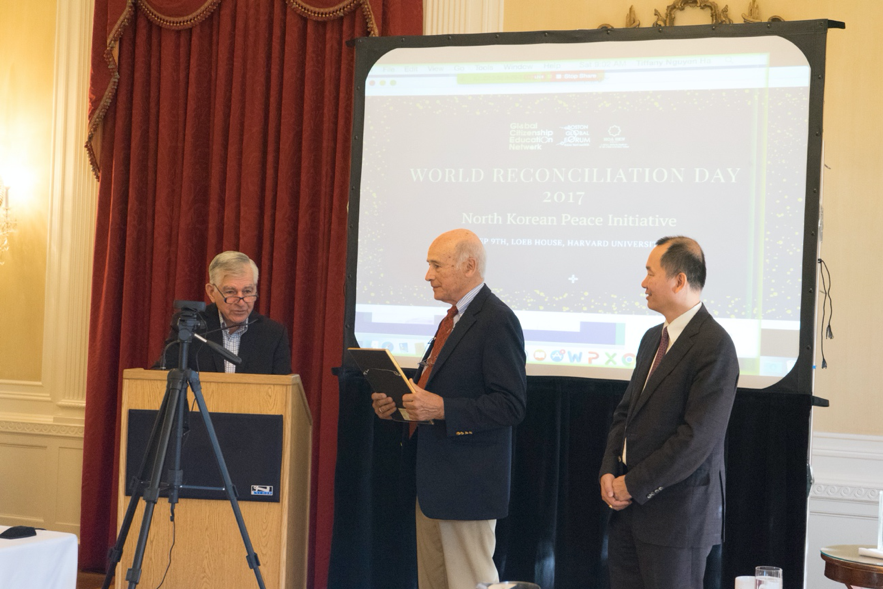
by Editor | Jan 26, 2020 | News
As his trial begins in the U.S. Senate, the impeachment of President Trump is, at its heart, a question about ethics. Was it proper for the president to withhold U.S. military aid to a strategic foreign ally to leverage its cooperation in an effort that could undercut a political rival? In a new book, “Do Morals Matter? Presidents and Foreign Policy from FDR to Trump,” Joseph S. Nye Jr., University Distinguished Service Professor Emeritus at Harvard Kennedy School (HKS), examines the role that ethics played in the foreign policies of every U.S. president since World War II. In evaluating each on the moral soundness of their intentions, their results, and the means they used to achieve those results, Nye makes a case for the enduring relevance of American exceptionalism in the 21st century.
The original article can be found here.
Professor Joseph Nye is a member of the Boston Global Forum’s Board of Thinkers. Governor Michael Dukakis, co-founder of the AIWS Innovation Network, honored him as a Global Distinguished Educator on World Reconciliation Day September 9, 2017 at Loeb House, Harvard University.
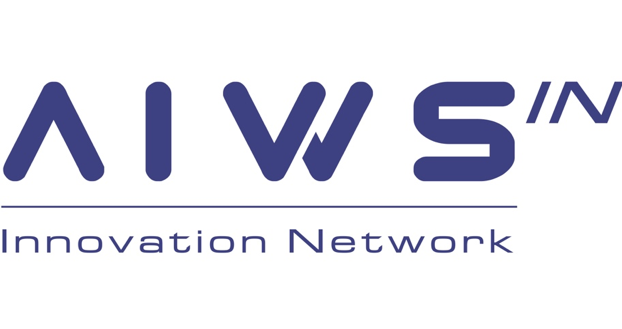
by Editor | Jan 26, 2020 | News
From February 20, 2020, World Leadership Alliance-Club de Madrid, United Nations, and the Boston Global Forum will co-organize the AIWS Innovation Network Roundtable with participants such as world leaders, distinguished thinkers, innovators, and business leaders to discuss building the Social Contract for AI Age. The Content of the Roundtable will be collected, selected and posted on AIWS Innovation Network (AIWS-IN), Section “The Social Contract 2020 and UN 2045” at https://aiws.world/practicing-principles/aiws-social-contract-2020-and-united-nations-2045/ and used for Policy Dialog-AIWS Summit 2020 at Harvard and MIT in April, 28-29, 2020.
Governor Michael Dukakis, co-founder of AIWS Innovation Network (AIWS-IN) will moderate this online discussion to solve questions:
- How to balance the 5 centers of power: Governments, Business, People, Civil Societies, AI Assistants
- Data and AI regulations.
- How to balance the great powers in AI age?
World Leadership Alliance-Club de Madrid is the biggest forum of presidents and prime ministers of democracy countries with more than 100 former head of states and governments.
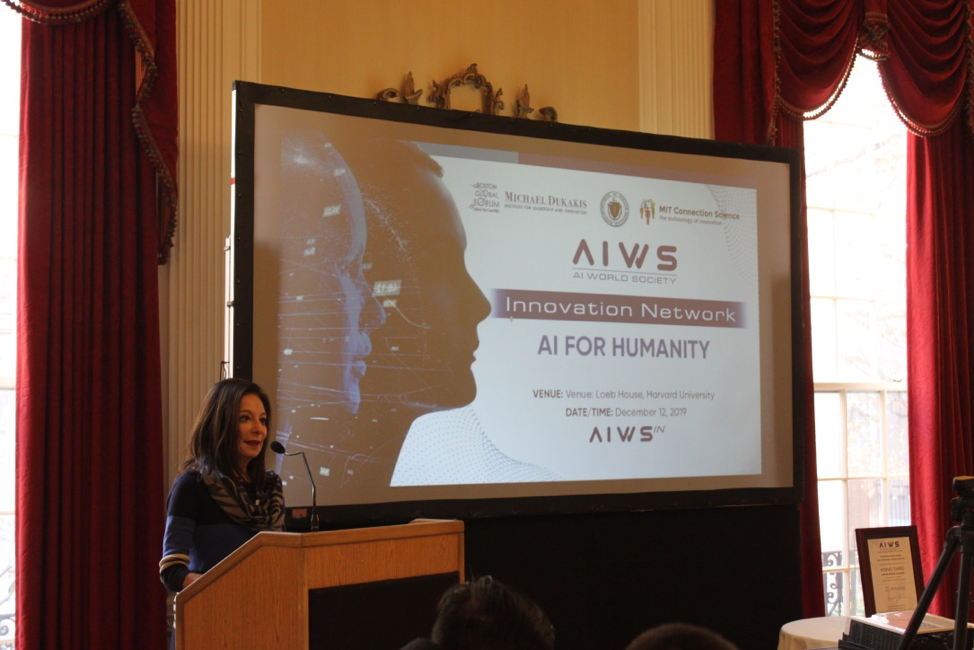
by Editor | Jan 26, 2020 | News
Professor Nazli Choucri, MIT, co-founder of the AIWS Innovation Network, writes for the United Nations 2045 project.
Advances in AI, internet, social media, and threats to cybersecurity jointly shape a new worldwide ecosystem for which there is no precedent. At issue is building new dimensions, even principles, which would shape the future of international law
All participants and centers of power and influence contribute to framing the legal order in the age of AI. And each has rights and responsibilities that must be articulated and respected. An initial framing is presented below:
(1) Individuals, Citizens, Groups:
Everyone is entitled to basic rights and dignity that are enhanced by AI and the Internet Age and entail greater responsibility:
Data Rights and Responsibilities
Each individual has a right to privacy and is entitled to a device to access and control their own data. Individuals have a right to organize ways of managing their data, individually or collectively.
Education and Political Participation
Each individual has the Right to be involved directly and effectively in political decisions. Each has access to education/knowledge pertaining to the use and impact of AI.
Responsibility:
Each individual is prohibited from exercising adverse behaviors, such as hacking and disseminating disinformation.
(2) Governments:
Every government is expected to behave responsibly in the management of AI for governance and for interactions with individuals.
Governments Standards:
Create incentives for citizens to use AI in ways that benefit society.
United Nations and International Organizations:
Extend sphere to include AI and extend the upholding of international standards/norms/practices pertaining thereto.Create and manage a universal digital currency.
(3) Business Entities
Business operations and related rights come with accountability and responsibility – nationally and internationally.
- Respect independent audits for fairness, accountability, and cybersecurity.
- Respect common AI values, standards, norms, and data ownership rules, and expect penalties for noncompliance.
(4) Civil Society Organizations:
Rights and responsibilities of civil society organizations include monitoring governments and firms with respect to common values.
- Civil society organizations are responsible for compliance with common values/norms/standards/laws and expect penalties for noncompliance.
- Support and recognize exemplary citizen contributions in AI area.
(5) AI Assistants:
AI assistants provide an interface to facilitate compliance with established standards.
- Support AI users and assist them to serve the broad interests of society.
- Engage with other power centers for mutual support and supervision.
The full document can be found here.
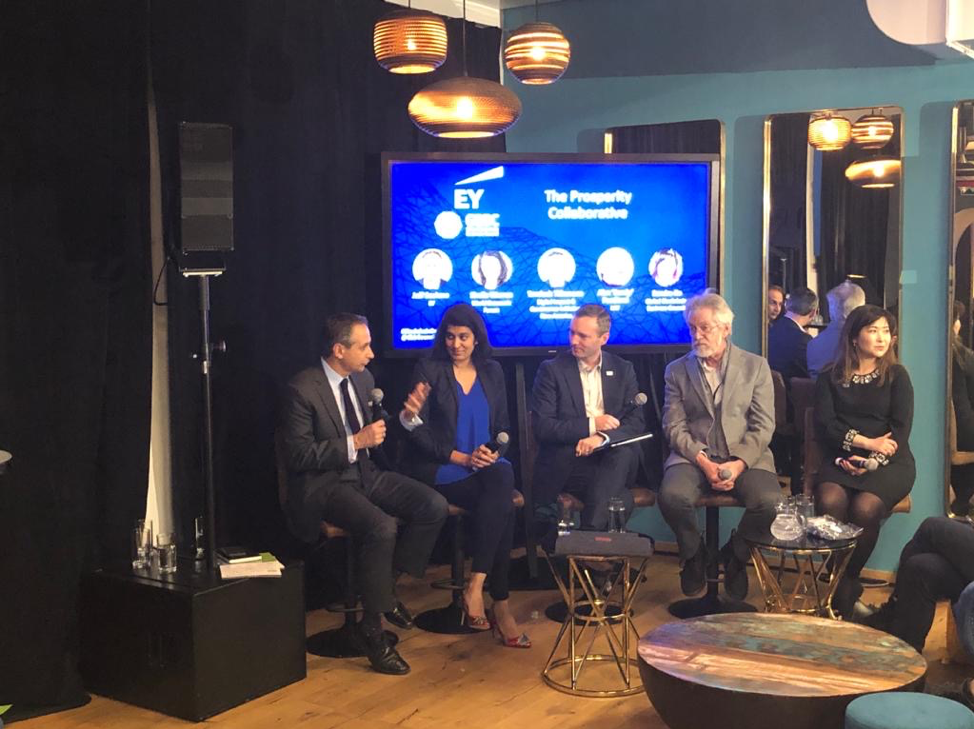
by Editor | Jan 26, 2020 | News
Aligned with the 50th anniversary of the World Economic Forum, there was a movement in Davos this year connecting taxation with prosperity, this is a part of the AI-Government model. Five great institutions have been collaborating to develop, test and deploy innovative data systems and technology platforms to improve taxation in emerging markets and developing economies (EMDEs). The Boston Global Forum is joined by MIT Connection Science, the action-tank, New America, The World Bank, and professional services giant, EY in this important endeavor. These organizations are each pledging even greater collaboration in the days ahead. We proudly call our work, The Prosperity Collaborative.
In Davos, Jeff Saviano, who leads this effort for EY, New America’s Tomicah Tillemann, and Alex ‘Sandy” Pentland, leader of MIT Connection Science, unveiled The Prosperity Collaborative story at Pentland’s Imagination in Action event. This was followed by an in-depth discussion at the Global Blockchain Business Council’s Davos forum of the intense tax issues within EMDEs and how application of new data and technology platforms will lead to a fair and efficient taxing system. The connection of taxation to prosperity was the talk of Davos!
Policymakers are telling us they need this collaborative effort to directly contribute to the Global Goals – for a better world. Much of the effort to fund the UN’s Sustainable Development Goals has been to reallocate capital; often times, making difficult choices to shift funding from one important social cause to another. The founding members of The Prosperity Collaborative believe that new technology and data systems will have the necessary effect of increasing tax compliance; creating additional capital to fund the Global Goals.
Here at the Boston Global Forum, we are deeply committed to this work and the great institutions we have been collaborating with. Governor Michael Dukakis, Co-Founder and Board Chairman of the Boston Global Forum, says ‘from my many years in government, I have personally seen the direct connection of taxation to prosperity. I am personally committed to The Prosperity Collaborative and our work to develop new, cutting edge, technology for better tax systems and a better world.’
If you would like to learn more about The Prosperity Collaborative, please reach out to Boston Global Forum CEO, Nguyen Anh Tuan, or Jeffrey Saviano, EY Global Tax Innovation Leader.

by Editor | Jan 26, 2020 | News
The Office of Management and Budget released a draft memorandum Jan. 13 providing guidance to agencies on how they should approach regulation of industry’s artificial intelligence applications.
The guidance emphasizes that agencies should consider how any regulatory action would potentially hinder expansion of AI use. The draft memo “calls on agencies, when considering regulations or policies related to AI applications, to promote advancements in technology and innovation.”
“Agencies must avoid a precautionary approach that holds AI systems to such an impossibly high standard that society cannot enjoy their benefits,” OMB officials wrote. “Where AI entails risk, agencies should consider the potential benefits and costs of employing AI, when compared to the systems AI has been designed to complement or replace.”
Throughout the draft memorandum, OMB expresses concerns about the federal government over-regulating AI to the extend that it hampers innovation and development of the technology. But there will be some cases where agencies will have to issue rules and regulations pertaining to AI applications. To avoid over-burdensome regulation, the draft memo includes 10 principles for use in government:
- Public trust in AI. Regulatory and non-regulatory actions need to be reliable, robust and trustworthy.
- Public participation: The public should have opportunities to participate in the rule-making process.
- Scientific integrity and information quality. The government’s approaches to AI should use scientific and technical information and processes.
- Risk assessment and management. Regulatory and non-regulatory approaches should be made after assessing risk and determining how to manage it.
- Benefits and costs. Agencies need to consider the full societal costs and benefits related to developing and using AI applications.
- Flexibility. Agency approaches to AI should be flexible and performance-based.
- Fairness and nondiscrimination. AI can reduce or increase discrimination. Both regulatory and non-regulatory approaches need to consider issues of fairness and nondiscrimination in outcomes.
- Disclosure and transparency. Agencies should be transparent in an effort to improve public trust in AI.
- Safety and security. Agencies should ensure that that they have controls in place to guarantee confidentiality, integrity and availability of data used by AI.
- Interagency coordination. OMB officials wrote that agencies need to coordinate with one another about shared experiences and “ensure consistency and predictability of AI-related policies.”
According to this, Michael Dukakis Institute for Leadership and Innovation (MDI) created Artificial Intelligence World Society Initiative (AIWSI) as a means of counteracting harmful and unethical uses of AI, and building the 7-layer AI model, including ethics, to achieve a peaceful and secure world. The AIWS Innovation Network, a part of AIWSI, is also promoted to identify, publish and promote principles for the virtuous application of AI into governments, corporations and non-profit organizations.
The original article can be found here.

by Editor | Jan 26, 2020 | News
The market value of AI in the health care industry is predicted to reach $6.6 billion by 2021. Artificial intelligence is increasingly growing in popularity throughout various industries. Most of us associate AI with things like robots, Alexa and self-driving cars.
But AI is a lot more than that. AI experts see it as a revolutionary technology that could benefit many industries.
The impact of AI in the health care sector is genuinely life-changing. It is driving innovations in clinical operations, drug development, surgery and data management. AI technology is also rapidly finding its way into hospitals.
AI applications are centered on three main investment areas: digitization, engagement and diagnostics. Looking at some examples of artificial intelligence in health care, it is clear that there are exciting breakthroughs in incorporating AI in medical services.
Let’s explore some of the amazing applications of AI that are revolutionizing health care.
Robot Doctors
AI does not get more exciting than robots. However, these are not the humanlike droids from science fiction films. We are talking complex and intelligent machines designed for specific tasks.
Clinical Diagnosis
AI algorithms diagnose diseases faster and more accurately than doctors. They are particularly successful in detecting diseases from image-based test results.
Precision Medication
Precision medication refers to dispensing the correct treatment depending on the patient’s characteristics and behavior. Equally essential to correct diagnosis is the provision of the appropriate treatment. This mostly means the exact prescription and recovery routines for the best outcome.
Drug Discovery
Drug development is a tedious venture that may take years and thousands of failed attempts. It can cost medical researchers billions of dollars in the process. Only five in 5,000 drugs that begin pre-clinical trials ever make it to human testing. And only one of the five may find its way to pharmacies.
Personal Health Assistants
These gadgets use the data to make recommendations. This is an attempt to remedy any irregularities. Most of these devices store data locally or online. The data can be retrieved and used by medical practitioners as a medical report.
Adopting Examples Of Artificial Intelligence In Health Care
AI is here to stay. It will not replace doctors with machines but work alongside them. The goal is to achieve cheaper and more efficient health care services. Being a relatively new technology in health care, AI still has a long way to go, but the progress is impressive.
In 2019, the Michael Dukakis Institute for Leadership and Innovation (MDI) established the Artificial Intelligence World Society Innovation Network (AIWS-IN) to connect key AI actors and provide services that can assist in the development of AI. AIWS-IN also promotes AI applications in healthcare for helping people achieve well-being and happiness, unleash their potential, and solve important issues, such as SDGs.
The original article can be found here.
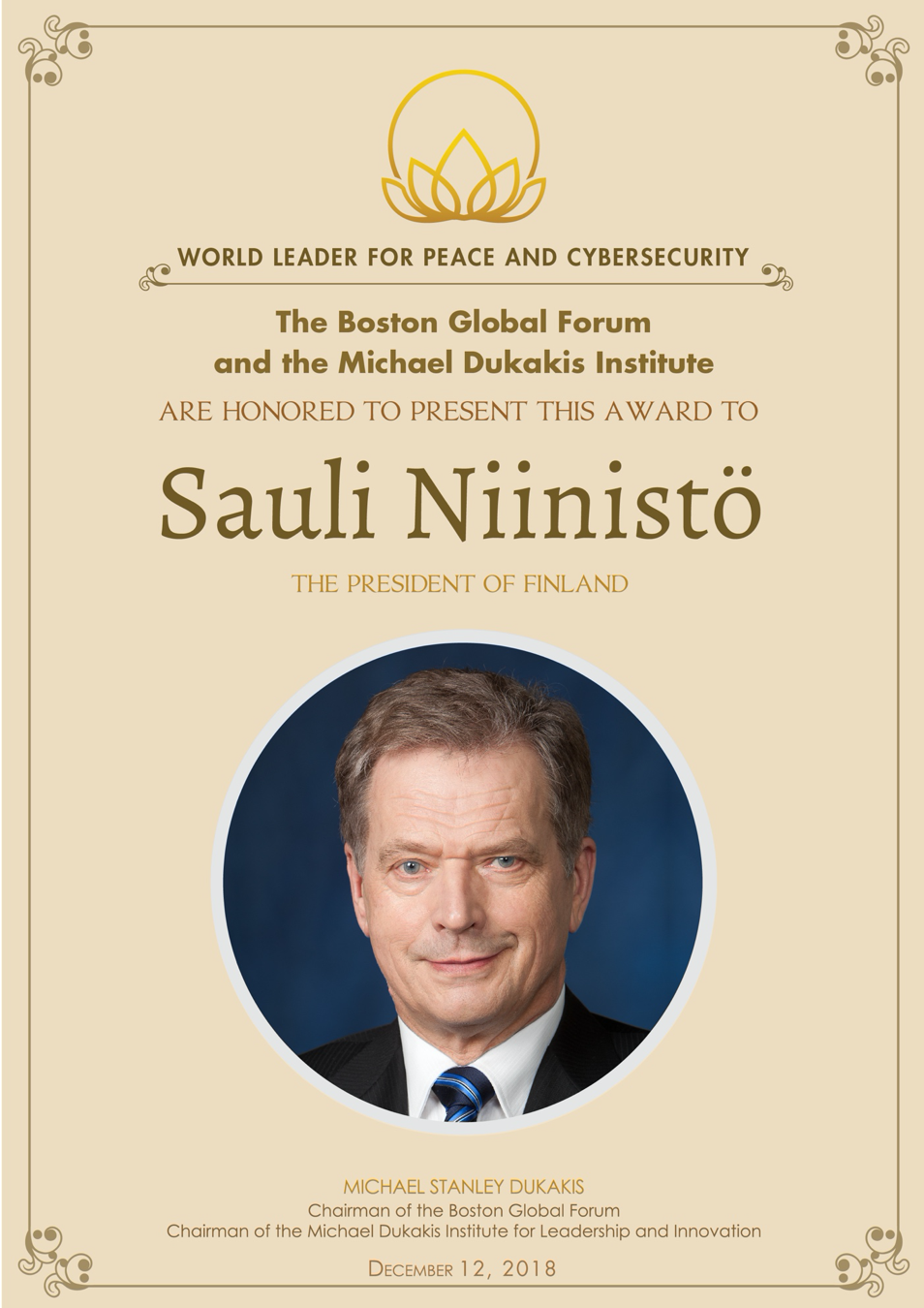
by Editor | Jan 20, 2020 | News
President Sauli Niinisto, BGF World Leader for Peace and Security Award 2018, will, together 46 world leaders, attend the World Holocaust Forum at Yad Vashem on Thursday, marking the 75th year since the liberation of Auschwitz-Birkenau.
The gathering of world leaders poses a huge security challenge for Israel’s security forces, the third-largest gathering since the funerals of Shimon Peres in 2016 and Yitzchak Rabin in 1995.
Some of the most notable leaders who will attend the forum are US Vice President Mike Pence, Russian President Vladimir Putin, French President Emmanuel Macron, German President Frank-Walter Steinmeier and Prince Charles of Britain, who are all slated to deliver a speech at the forum. Rav Yisrael Meir Lau, chairman of the Yad Vashem council as well as Prime Minister Binyamin Netanyahu will also speak.
Other royals who will attend in addition to Prince Charles, who is making his first official visit to Israel, are the kings of Spain, Belgium, and Holland, the crown prince of Norway and the grand duke of Luxembourg.
The original article can be found here.

by Editor | Jan 20, 2020 | News
The Harvard Gazette introduces the new book by Professor Thomas Patterson, co-founder of the Boston Global Forum and AIWS Innovation:
https://news.harvard.edu/gazette/story/2020/01/excerpt-thomas-pattersons-how-america-lost-its-mind/
Since then, there has been a revolution in mass communication and a leap in the number of people with college educations. Americans have never had so much information available or been better trained to handle it. Yet they are no better informed today than they were decades ago. The high-school-educated public of the 1950s knew as much about the structure of America’s government as does the media-saturated, college-educated public of today. When asked in a recent national survey to name the three branches of government, only a third of respondents could do so. Another third could name one or two. The final third couldn’t name a single one. Those ratios are nearly the same as when Americans were asked the question in 1952.
“Some conspiracy theories are harmful. A few are downright dangerous. Most are merely bizarre. More harmful to our democracy is a cousin of conspiracy theories — misinformation. It also involves fanciful ideas about the actual state of the world, but it is far more widespread and a far greater threat.”
“The Internet is an extraordinary advance. It has changed our lives in positive ways, giving us a level of access to information that was unimaginable a few decades ago. Yet mixed in with the Internet’s reliable content is misinformation, so many shades of it that it would put a lipstick counter to shame.”
“Aside from the delusional comfort it offers, misinformation doesn’t have much to recommend it. But there’s arguably something worse: people who know they are being fed false information and embrace it.”
In the problems professor Patterson raised in his book, AIWS young leaders, and distinguished thinkers of AIWS Innovation Network (AIWS-IN) at AIWS.world contribute solutions, initiatives, concepts, and practice. The AIWS-IN connect around 100,000 distinguished professors, thinkers, innovators from top universities in the world such as Harvard, MIT, Stanford, Princeton, Columbia, Yale, Berkeley, UCLA, Carnegie Mellon, Cambridge, Oxford, University of Tokyo etc.








